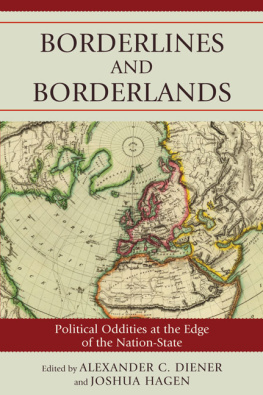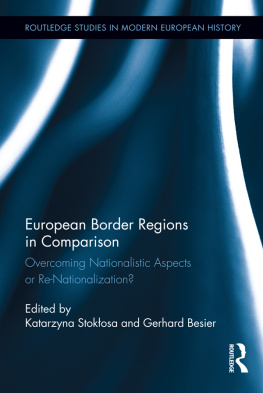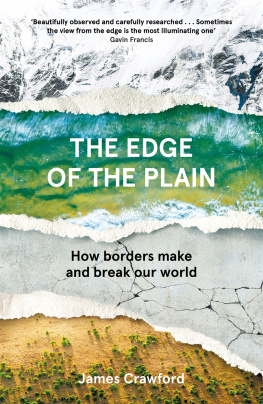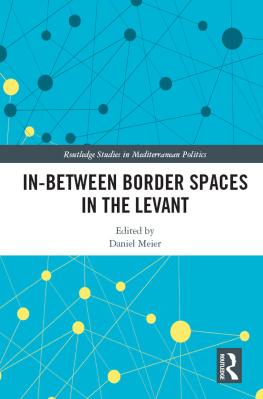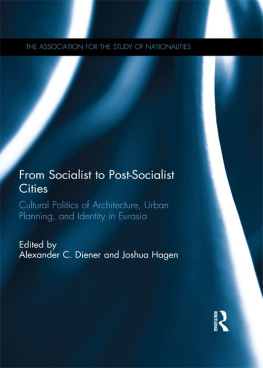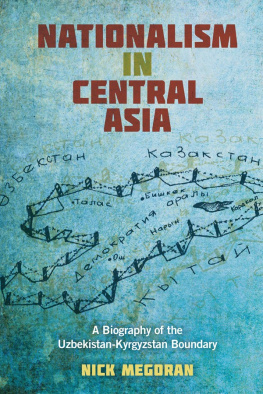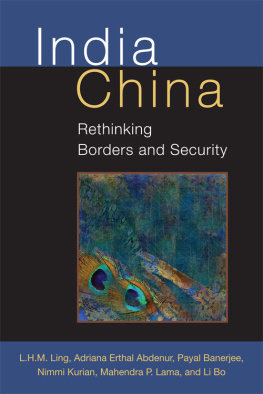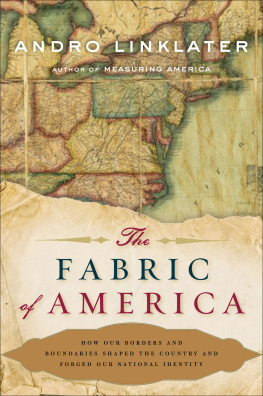About the Contributors
Eric D. Carter is an assistant professor at Grinnell College (Iowa), where he teaches courses in geography, anthropology, and global development studies. His research interests include disease ecology; development in peripheral regions of modernizing states; and the nexus of state-sponsored science, regional development, and nationalist discourse, mainly in Latin America. He has published research on the historical geography of malaria control in Argentina in such journals as Geoforum, the Journal of Historical Geography, and the Journal of the History of Medicine.
Karen Culcasi is Assistant Professor of Geography in the Department of Geology and Geography at West Virginia University. Employing a critical geopolitical lens, Karens research examines both Western and Arab geographical imaginings of the Middle East. Her recent publications include articles in Po litical Geography, Aether: The Journal of Media Geography, and several entries in volume six of the History of Cartography.
Alexander C. Diener is Associate Professor of Geography at Pepperdine University. He is the author of One Homeland or Two?: Nationalization and Transnationalization of Mongolias Kazakhs (2009) and Homeland Concep tions and Ethnic Integration among Kazakhstans Germans and Koreans (2004). His research and teaching interests include borders, migration, nationalism, transnationalism, and the moral consequences of territorialization. His area studies specialty is Central Eurasia and Mongolia.
Joshua Hagen is Associate Professor of Geography at Marshall University. In addition to international borders and border theory, he has broad research interests spanning architecture, urban design, and political authority; cultural politics of place names; geographies of tourism and heritage; geographies of national identity and territoriality; and historic preservation and places of memory. His research has been published in several prominent academic journals, including the Annals of the Association of American Geographers, Political Geography, Cultural Geographies, Journal of Historical Geography, and Journal of Urban History.
Reece Jones is Assistant Professor of Geography at the University of Hawaii at Mnoa. His research investigates the political geography of globalization, particularly as it relates to political borders and the boundaries of group identity categories. He has most recently published articles in the journals Progress in Human Geography and Transactions of the Institute of British Geographers.
Robert Lloyd is Associate Professor of International Relations at Pepperdine University and directs its International Studies program. He has published numerous scholarly articles on international conflict management and negotiation, democratization, and Africa. Recent publications include several edited volume chapters and an article in Current History: A Journal of Contem porary World Affairs. Prior to Pepperdine, he worked for five years in Kenya, South Africa, and Mozambique with a nongovernmental organization. Dr. Lloyd has been an election observer in Mozambique, Liberia, and Nigeria.
Nick Megoran is a Lecturer in Political Geography at Newcastle University, School of Geography, Politics, and Sociology. His research interests relate to political geography of Central Asia; the legacy of Halford Mackinder; and Christianity and US/UK foreign policy. He has published in a number of prominent journals, including Environment and Planning D: Society and Space, Political Geography, Antipode, and Geopolitics. He is also the author of The War on Terror: How Should Christians Respond? (2007).
Julian V. Minghi is Distinguished Professor Emeritus in Geography at the University of South Carolina. His major research interests are in political geography with a special emphasis on boundaries and borderlands. He was awarded a Canada Council research grant (19691970), held a research grant from the National Geographic Society (1980), and was a senior Fulbright research scholar (19931994). Books include (with Roger Kasperson) The Structure of Political Geography (1969) and several others, including The Geography of Border Landscapes (with Dennis Rumley) in 1991. He has also contributed more than sixty chapters in edited books and articles in scholarly journals on a wide variety of topics, but with emphasis on borderland problems in Europe and North America over the past five decades.
David Newman is Professor of Political Geography and Geopolitics at Ben Gurion University in Israel. He is currently the co-editor of the quarterly journal Geopolitics. His research interests focus on the territorial dimensions of ethnic conflict and the conceptualization of borders in the contemporary world, with an empirical focus on the Israel-Palestine arena. He is also interested in issues relating to politics and science. His recent publications on borders include articles in the European Journal of Social Theory, Progress in Human Geography, and a chapter in Ashgates Research Companion to Border Studies.
Robert Ostergren is Professor of Geography at the University of Wisconsin, Madison. He is co-author of The Europeans: A Geography of People, Environment and Culture, and does research on place identity, regionalism, migration, and iconic landscapes and architecture in Europe, particularly in Scandinavia and Germany. His current project explores the political uses of place and architecture during the National Socialist period in Germany. He is also known for his work on nineteenth-century European immigration to and settlement in North America, which includes the award-winning book, A Community Transplanted: The Trans-Atlantic Experience of a Swedish Immi grant Community in the Upper Middle West, 18351915, as well as the edited volume Wisconsin German Land and Life.
William C. Rowe is Assistant Professor of Geography at Louisiana State University. He has contributed essays to World Regional Geography: A Develop ment Approach (2010) and Geographies of Muslim Identities: Diaspora, Gender and Belonging (2007). His research and teaching interests include cultural/political ecology, geography of religion, and economic geography. His area studies specialty is the Persian-and Arabic-speaking areas of Central Asia, the Middle East, and North Africa.
Acknowledgments
F irst and foremost , we would like to thank the chapter authors. This volume would not have been possible without their expertise, dedication, and hard work. We would also like to thank two institutions that provided vital financial assistance for this volume: Pepperdine University, which helped fund the cartographic work; and the Alexander von Humboldt Foundation, which supported research for chapter 8. We would be remiss if we did not acknowledge the efforts of Susan McEachern and her colleagues at Rowman & Littlefield in formatting, proofing, and designing this volume, Cory Johnson of XNR for his cartographic work, and the two anonymous reviewers for their helpful comments. Finally, we would like to thank our families: John and Bethany Diener, and Rachel, Sabina, and Oliver Hagen.
Bibliography
Ackleson, Jason. Constructing Security on the U.S.-Mexico Border. Political Geography 24, no. 2 (2004): 16584.
Agnew, John. The Territorial Trap: The Geographical Assumptions of International Relations Theory. Review of International Political Economy 1, no. 1 (1994): 5380.
. Geopolitics: Re-Visioning World Politics. London: Routledge, 1998.
Agnew, John, and Stuart Corbridge.

